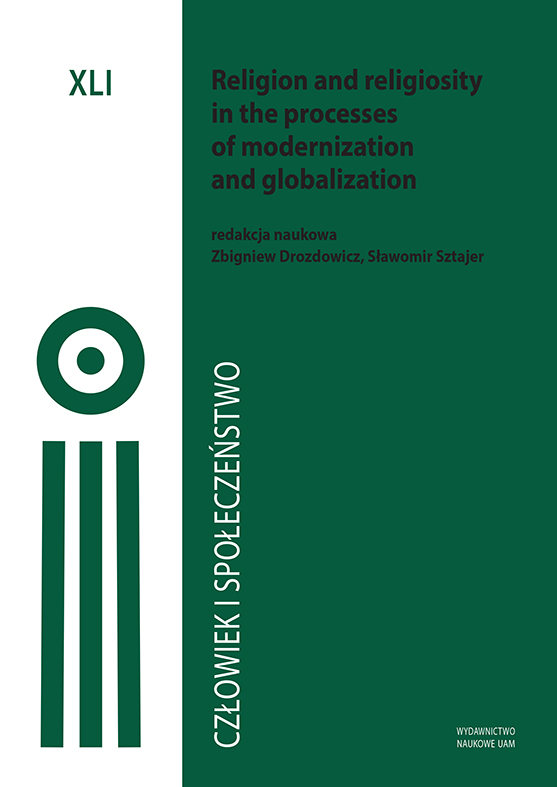Causes, forms and effects of social and moral confusion of the institutional Roman-Catholic Church in Poland
Causes, forms and effects of social and moral confusion of the institutional Roman-Catholic Church in Poland
Author(s): Józef BaniakSubject(s): Christian Theology and Religion, Philosophy of Religion
Published by: Uniwersytet Adama Mickiewicza
Summary/Abstract: The lostness of an individual or institution is manifested in their aversion towards conforming or adapting to the social and cultural conditions in which they are to function or carry out their fundamental tasks. Lostness affects secular institutions as well as religious institutions, including churches. In this paper I demonstrate the lostness of the institutional Roman Catholic Church in Poland over the past 25 years through the reflections of clergymen and theologians, as well as on the basis of sociological research findings. Theologians claim that this lostness also signifies the specific pastoral situation of the Church brought about by the systemic transformations in Poland over this period, previously unencountered by and unknown to the Church, hindering the Church’s functioning and inducing it to take erroneous decisions. Lostness takes on a variety of forms and is manifested in numerous spheres of the Church’s secular activities, but does not affect its essence or religious identity. However, it does embrace its functions and actions, its attitudes and its decisions,in the area of secular and political activity, its relations with society, and also in relations within the clerical community. Wording it differently, lostness applies to the human structure of the Church,and within this above all the bishops and leaders who guide it and manage its assets, and who also perform an instructional and educational function towards the Church’s faithful.
Journal: Człowiek i Społeczeństwo
- Issue Year: 2016
- Issue No: 41
- Page Range: 49-69
- Page Count: 21
- Language: English

